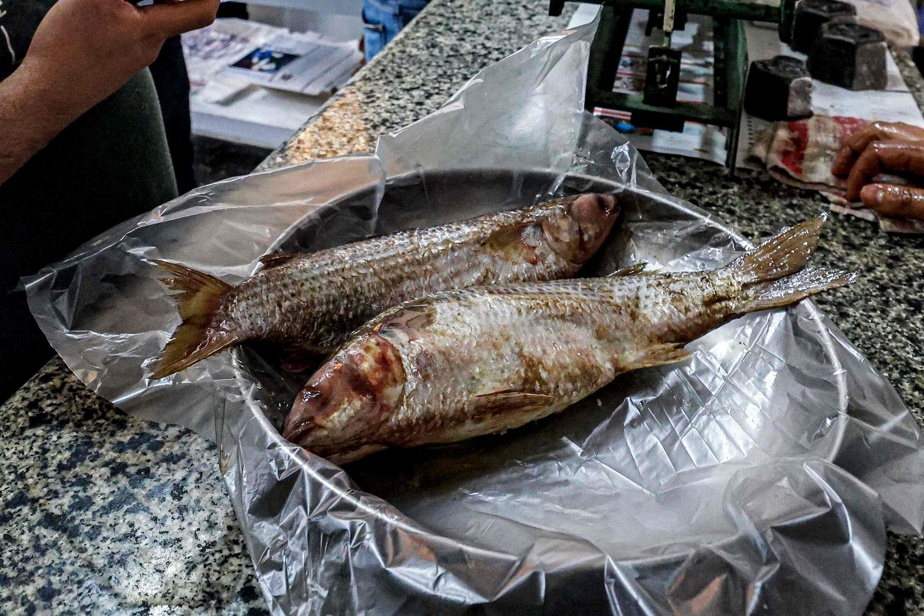(Nabarouh) In Nabarouh, in the heart of the Nile Delta, you could imagine yourself in a coastal town as the streets dotted with stalls exhale a powerful aroma: the typical scent of salted and fermented fish that the Egyptians call fessikh.
The technique has been the same since the time of the pharaohs: this freshwater fish is first dried and then immersed in salt for several weeks before adorning the table of the Egyptians who delight in it despite its smell that takes you to the nose .
“The ancient Egyptians salted the fish to extend its shelf life, so the workers could eat it while they were building the pyramids,” says archaeologist Zahi Hawass, who says he has found traces of this fish. salty during excavations.
These days, if this dish — and especially its smell — is divisive, it remains a staple of the celebrations of Cham al-Nessim, which will take place on Monday this year.
This festival, whose name means “feel the breeze” in Arabic, has marked the arrival of spring since Pharaonic times. It is still celebrated today by the 105 million Egyptians, whether Muslim or Christian.
On Monday, in all the houses, they will form two camps: those who complain about the pugnacious smell of this salty fish and those who delight in it with bread and green onions — but this time, for the Muslims, no outdoor picnic, you will have to wait for the Ramadan fast-breaking dinner.
“Nabarouh is the capital of the fessikh in Egypt,” boasts Chérif al-Yamani, 44, and owner of the most renowned salt fish business.
Mr. Yamani claims to be descended from one of the families that at the turn of the century helped forge his city’s reputation for this specialty.
“During the celebrations (of Sham al-Nessim) like the rest of the year, we receive customers who come from all over Egypt,” he told AFP while serving a customer from Cairo, 150 km further south.
Karim Abdel Gawad, drove the 55 km that separate his city of Gharbia from Nabarouh, “because here it’s really something else,” he told AFP.
“There is no room for improvisation with the fessikh, you have to get supplies from a place of trust,” he concludes.
This fish is prepared according to very specific rules and any misstep — a fish that is still too wet or too lightly salted — can make this typical dish a carrier of botulism, a sometimes fatal food infection, as the Ministry of Health reminds us every year. .
“It all depends on how the fish is prepared,” confirms Mr. Yamani, who warns potential buyers against open markets or other sellers where the quality may not be there.
Although fasting people fear the high salt content of the fish will make them thirsty the next day, Yamani says he received orders a week before the start of Ramadan this year.
The love for this dried fish seems to overcome fears of dehydration and his shop is always full, even in the middle of Ramadan.
“We never imagined selling so much” in a country where inflation is close to 34% and poverty continues to grow, “but it seems that fessikh sales have not been affected too much” – despite the seven euros to pay for a kilo –, assures Mr. Yamani.
Eyes sharp, ready to spot the slightest mistake, Mr. Yamani supervises his employees as they pile the fish in large wooden barrels, under thick layers of coarse salt, to soon allow his customers to adorn their tables of Cham al-Nessim of the best fessikh.















